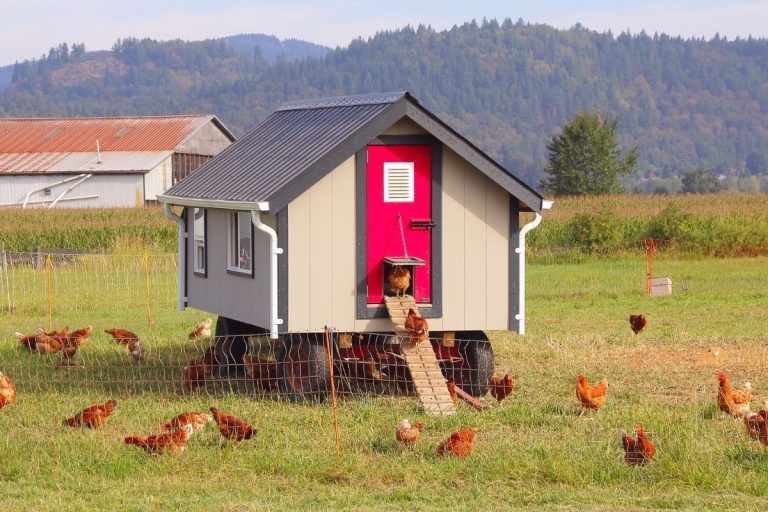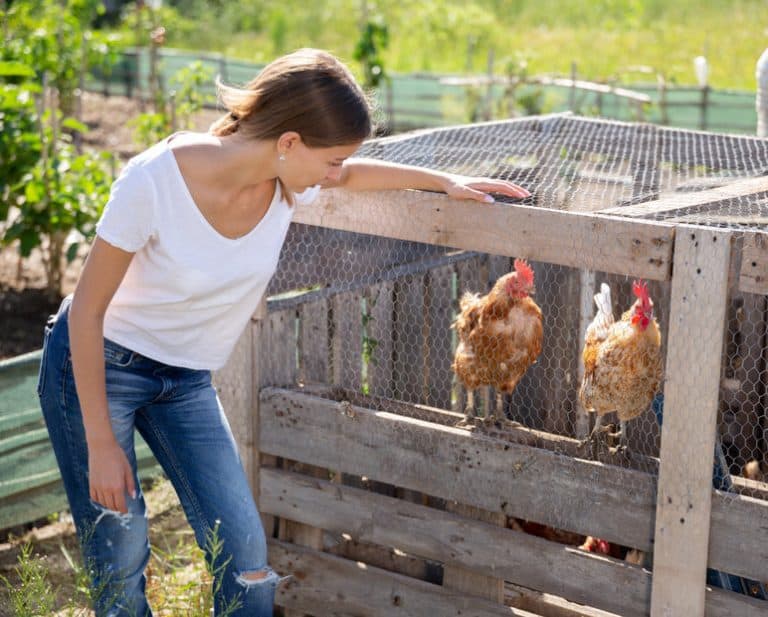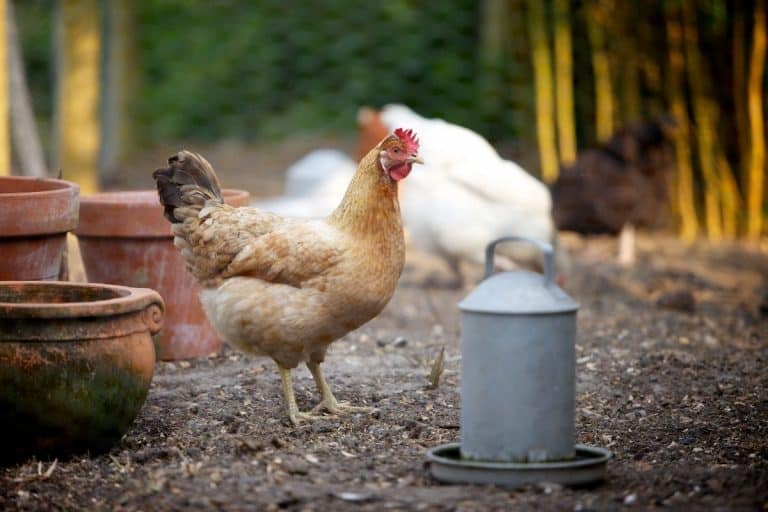How to Keep a Chicken Coop from Smelling (Tips and tricks)
Every farm animal, big or small, furry or feathered, has a smell to them. And chickens are no exception. Unfortunately, a stinky chicken coop can cause many problems with your neighbors and hens if you are not good at keeping it clean and smell-free. No one wants to smell bird poop every time there’s a breeze. Thankfully, there are plenty of ways to help curb this smelly and funky issue.
As a general rule, the chicken coop smell can be highly reduced by keeping out moisture, scooping up any overly soiled or wet bedding every few days and by spraying with a deodorizer.
When raising a flock of chickens, it is good practice to keep their coop clean and dry. Moisture is the main cause of the unpleasant odors with your chickens and their living areas. When fecal material mixes with water, their stool breaks down, causing the strong ammonia smell. This article dives into helpful tips and tricks for keeping your chicken coop smelling fresh.
Hey chicken buddies: Quick heads-up before going further! I've put together a list of stuff I use and love for my flock. If you're curious about what keeps my hens happy, click here to find out.
How Do You Keep A Chicken Coop From Smelling Bad?
Raising a flock of backyard chickens for the first time is a big learning experience. There are so many things to consider when preparing a coop and run that most people will learn through a lot of trial and error.
When it comes to minimizing smell, keeping the moisture build-up and water to a minimum is the most important.
Wait, I have some recommendations for you!
Before you go any further, I want you to take a look at some of the recommendations I've handpicked for you. I think these are essential items you should have for your chickens flock. You can check them out and buy them directly from Amazon.
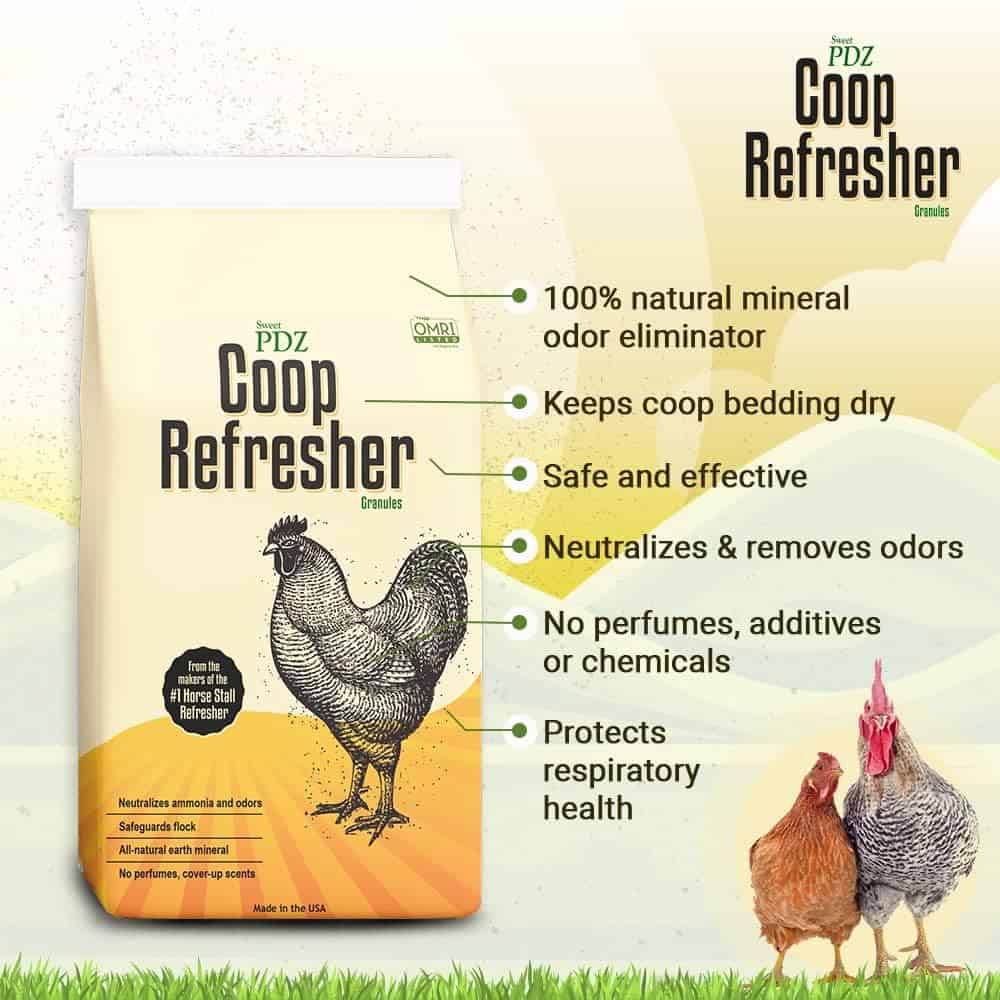 | 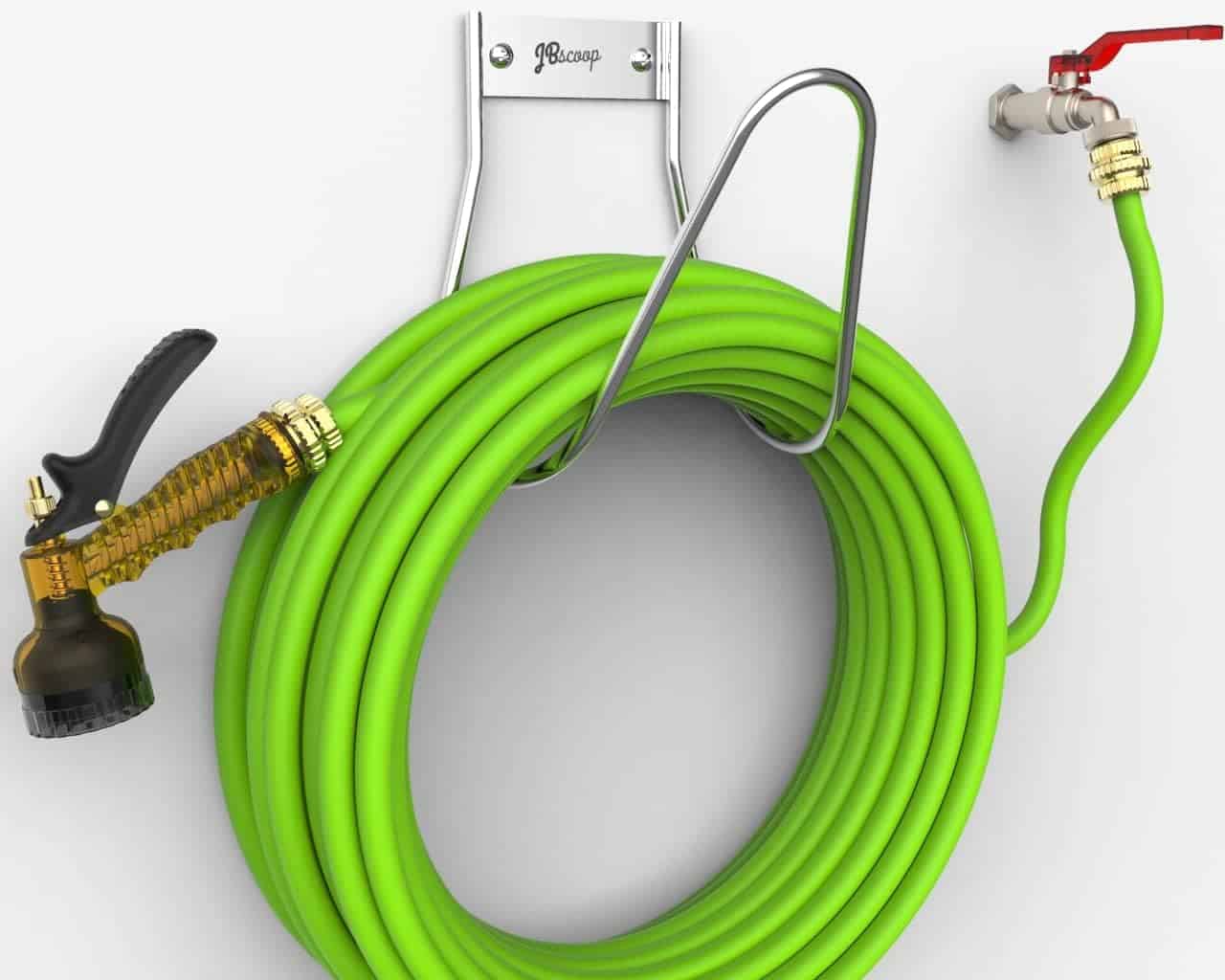 | 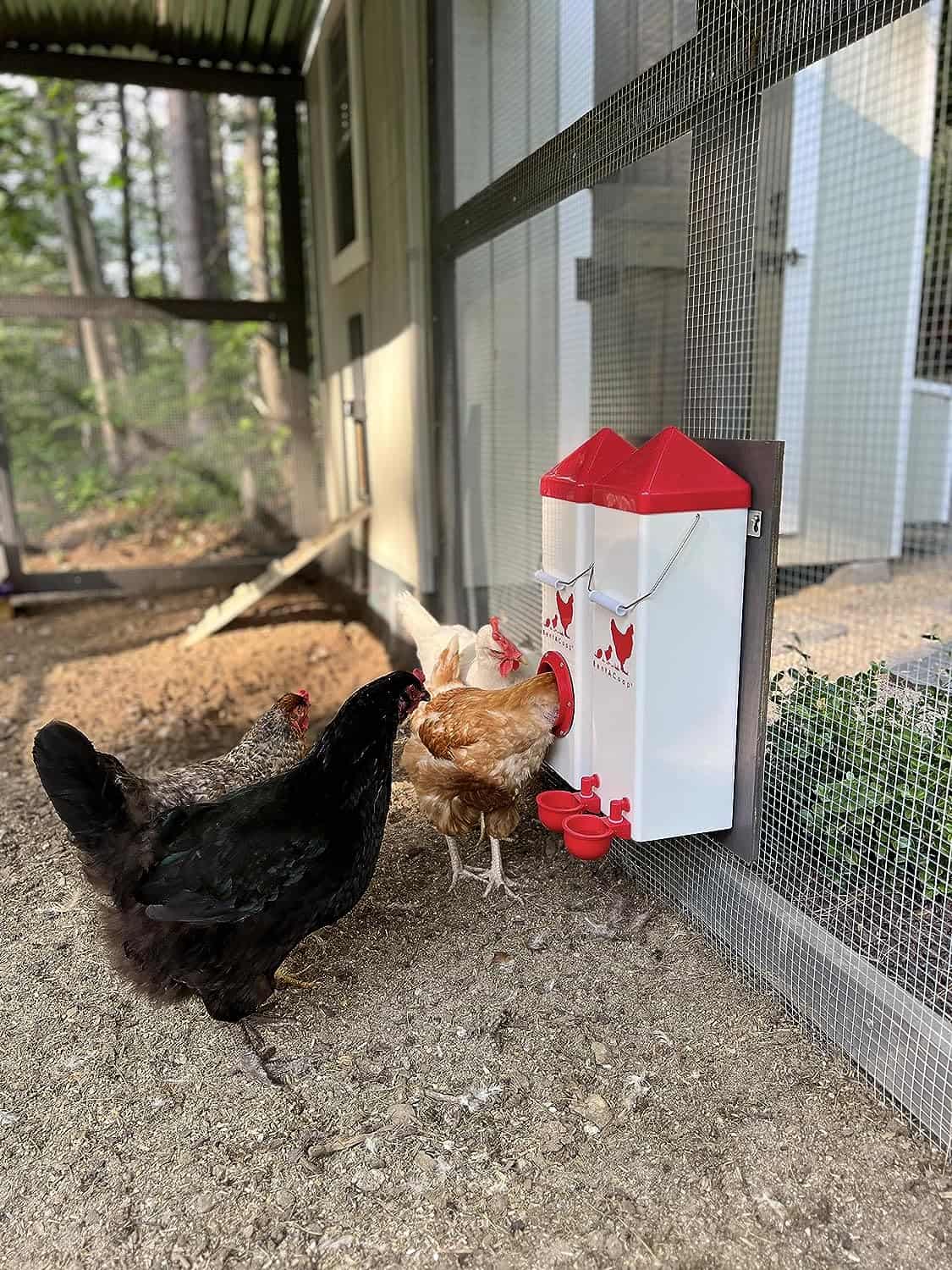 | 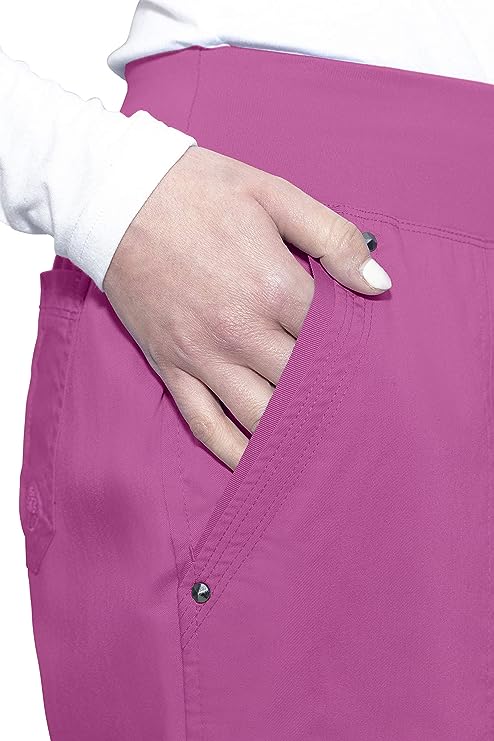 |
| Essential accessory for your coop | No more tripping over hoses! | Predator protection made easy | Comfort + style is possible |
Why Does My Chicken Coop Smell So Bad?
The main reason for a bad-smelling chicken coop is ammonia. Chicken feces is rich in nitrogen and when it becomes wet it breaks down and produces ammonia. This is the typical unpleasant smell that we associate with animal feces.
Ammonia not only smells terrible but is also harmful to your chicken’s respiratory tract and can cause future health problems.
How Can I Neutralize Bad Smells In My Chicken Coop?
There are several steps that can be taken to help neutralize the bad smells coming from a chicken coop.
The first step is to eliminate moisture in the coop along with incorporating fresh herbs and allowing for appropriate air circulation and ventilation.
Avoid moisture
Water and moisture have a heavy impact on the smell and cleanliness of a chicken coop. Whether it’s the water trough or bucket that is spilling or a minor leak somewhere, having this fixed would be key in improving the smell and overall health of the coop.
Moisture not only is a breeding environment for mold and smells, but it also invites disease and other issues that can cause problems with your chickens like respiratory complications.
Air circulation and ventilation
When there is a lack of air circulation in a chicken coop, stagnant smells and insects will start lingering, making it an unpleasant experience going inside.
Simply installing a fan to keep the air circulating, will go a long way to help with minimizing any unpleasant odors.
Humidity
When the temperatures start to rise and moisture and warmth combine, you will encounter more humidity. This hot, moist air only creatures more smell and dampness in the chicken coop. Fans will also help minimize moisture and humidity.
Fans can also help with stuffiness and heat stress during the warmer months of the year.
Use herbs and other plants
Hanging up or scattering fresh herbs can go a long way in keeping the coop smelling nice. Some people like to use rose petals on the ground for odor control. Plus, the chickens will appreciate the snack.
Herbs like mint and rosemary are not only tasty treats but are also used as natural remedies for repelling pests and deworming.
What Products Can I Use To Help The Coop Smell Better?
There are several products that are recommended and used in the chicken community for deodorizing and cleaning. Typically, they come in the form of a spray or granule that is applied to the bedding of the chicken coop regularly:
- Nesting herbs for good smelling
- Spray to clean pecking wounds
- Coop cleaner & deodorizer
- Super absorbent bedding
All links go to Amazon, where you can get more details, pricing and see other examples in each category.
The Absolutely Clean Chicken Coop Cleaner and Deodorizer
One of the top recommended products on the market for cleaning and deodorizing chicken coops is called The Absolutely Clean Chicken Coop Cleaner and Deodorizer.
This cleaner is veterinarian approved and comes in a spray form that is applied to the coop once all the bedding and chickens have been removed.
It will help tackle caked-on mess and stains, as well as unwanted odors, associated with most farm animals. This product does need to be applied somewhat regularly to remain effective.
What Is A Good Disinfectant For My Chicken Coop?
Much like everything else, that is always an overwhelming number of options for cleaning products and deodorizers. If you are looking for a disinfectant for your chicken coop then using Benefact Decon 30 could be beneficial.
Benefact Decon is an easy-to-use and natural product that is composed of the essential oil derived from the herb Thyme (Thymol). This makes it very safe and little aftercare is required, like spraying or wiping out.
With only 10 minutes of contact time, you will have a disinfected and pleasant-smelling chicken coop.
How Often Should I Clean My Chicken Coop?
Cleaning out your chicken coop regularly is extremely important for the control of unwanted odors and filth. Chickens are messy little creatures and manage to get poop and pee on a lot of surfaces, so ensuring that you have a regular cleaning schedule will help a lot.
Many farmers recommend scooping and turning the bedding material and scraping any stool that is stuck where they roost weekly. Depending on the bedding that you have in the coop could determine how often that should be tended to. For instance, sand is best if it is scooped daily. Straw also needs to be replaced often.
Deep cleaning
Most people are familiar with the term “deep cleaning” as taking everything out, cleaning thoroughly and putting back fresh material. This deep clean should be performed at least every quarter if not more depending on how many chickens you have and how large your coop is.
Deep cleaning will go a long way in ensuring that your chicken coop smells fresh and lacks the environment for disease.
What type of bedding is best to help with the chicken coop smell?
Bedding plays a huge role in the smell of your chicken coop. If you are using a bedding that traps moisture and heat, you will inevitably have a stinky coop.
There is a lot of debate among the chicken community about what bedding is best for chicken coops. The majority of chicken enthusiasts focus on this particular detail because the bedding type plays a large role in the comfort, cleanliness and smell of the overall enclosure.
Factors such as fluid absorbency and release, mold load, dust levels, ammonia levels and ease of cleanliness play a large role in the overall smell and condition of your chicken’s coop.
Straw
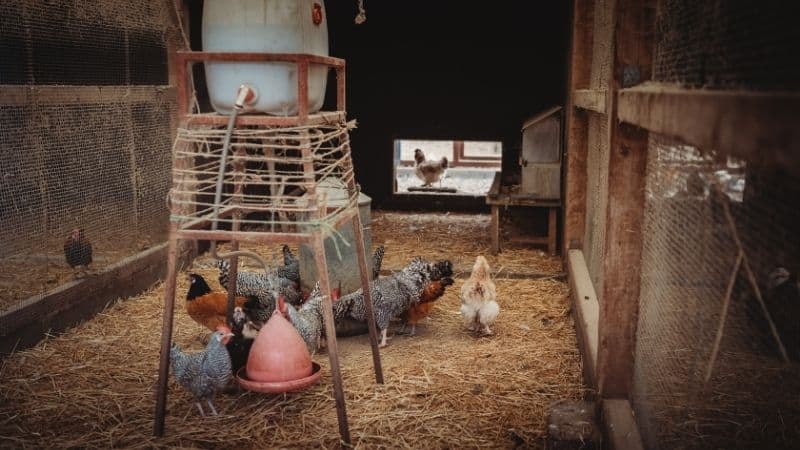
This method is one from the older days of raising farm animals like chickens. This would have been one of the first forms of bedding once humans started keeping their chickens in coops and runs.
While chickens do enjoy scratching in the straw and find it warm in the colder months of the year, it has several cons to it. Straw is difficult to keep clean, lacks absorbency and needs to be replaced often, it also does not do well to curb any stinky chicken smells. If you are wanting to have an easy to clean and less smelly bedding, straw is not the choice for you.
| Pros | Cons |
| Warm | Stinky |
| Cheap | Hard to clean |
| Easy to find | Lacks absorbency |
Sand
This bedding seems to be a commonly used form of litter for chickens. Many owners appreciate that it is easy to clean and can be scooped like a cat’s litter box or turned over daily with a rake so the old droppings go to the bottom.
Many farmers who prefer this form of bedding say that it is the easiest to keep clean, making it smell better longer.
| Pros | Cons |
| Easy to clean | Dusty |
| Deep litter method | Cannot compost |
| Oddor control |
Shavings – pine or cedar
Pine or cedar shavings are a popular form of bedding for those who are wanting to compost their chicken’s droppings. Many farmers say that their fecal matter is very hearty and a good addition to compost bins for future gardening. These shavings also do great in the odor control department.
| Pros | Cons |
| Easy to clean | Expensive |
| Odor control | Dusty |
| Good absorbency | Crop impaction |
Are cedar shavings toxic?
While wood shavings are a common favorite among those who raise chickens, there does seem to be some debate about whether or not cedar shavings can be toxic to chickens. However, there doesn’t seem to be an actual consensus among the community confirming this, but there is scientific data to prove it somewhat.
Crop impaction
We all know that chickens love to scratch and eat things off the ground in their coop. Crop impaction is where the ‘crop’ or stomach of the chicken becomes impacted with undigestible material, like pine shavings. Typically, without surgery, the chicken will not survive this.
Read this article if you want more details about the best ground cover for a chicken run.
Not a full-time job
Try to remember that while keeping your chicken’s coop clean and free of unwanted smells, pests and disease is extremely important, but it shouldn’t be a full-time job. The important thing is maintaining a dry environment, so finding the right products and materials that fit your budget and free time is key in getting the most out of your flock.


